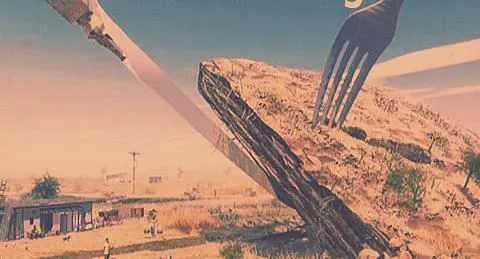In the early seventies, I had a chance rather it was a privilege to attend three schools in three adjacent hamlets of block Singhpora Pattan in District Baramulla in two years. It is a different story why I had to change three schools within such a short period. All the three picturesque villages like most of the Kashmiri villages had a vast area of state land (Khalsa Sarkar)—the combination of waste and old fallow at their entrance serving as village courtyards. These lush green grounds would serve as resting place for villagers in their leisure time; playing field for children and venue for all social, religious and little political activities. These lands were kept as grazing lands but most of the time village cattle would only gather in these grounds in the morning for their day out grazing on the outskirts of the village. Recently, after a gap of forty-seven years I visited these villages to look for best days of my childhood life but alas all those lush green playing and resting fields have vanished, and the green face of these villages stand pockmarked with encroachments. Gone are the days when these lush green lands would serve as a canvas for the village entities to create beautiful portraits of life and happenings.
Anyways, this is how I could visualise the attractive rural landscape of Kashmir and its beauty before the times it got devoured by the materialistic desire of post-1947 political progeny pampered by faulty democracy. It is not the pained story of these three villages only. Every hamlet, every town in Kashmir faces the hammer of encroachers and land-grabbers. Most of the state land that was once demarcated for specific purposes to oblige the state’s ecosystem; flora and fauna stand vandalised. Let us not go too far into the annals of Kashmir history particularly it’s land-use setting. The role and guidelines of Walter Lawrence the settlement commissioner for Jammu and Kashmir during the rule of Maharaja Pratap Singh between 1889–1894 is the benchmark for classifying the state lands. And this arrangement served the state until the sixties when the materialistic progeny with the active support of post autocracy politicians actively put their dirty hands on these lands. Under Walter Lawrence’s arrangement, the first right of exploration and use of state lands within an estate or village was that of inhabitants of that particular village, but the land-grabbers walked not only the extra mile but miles to grab the state lands and turn many beautiful hamlets and their community land into slums.
Many encroachers aka land-grabbers will contest my arguments regarding usurping of state land by them because it badly hits them. However, the acts and process of land grabbing going on for long in 2001 knowingly or unknowingly got acknowledged when then state government headed by Dr Farooq Abdullah enacted the Jammu and Kashmir State Lands (Vesting of Ownership to the Occupants) Act 2001 under the rosy trademark of ‘Roshni act’. These occupants who were otherwise encroachers their grabbing got legitimised by this shoddy Act. Interestingly, to accommodate chosen few in this Act 1990 was notified as cut-off year for encroachment on state land. However, later to accommodate their people in 2005 Mufti Mohammad Sayeed’s PDP-Congress government extended the cut-off year to 2004. Thus whatever little was left by our autocratic rulers to balm our wounds got not only usurped by the so-called populists and their associates, but they left no stone unturned to legalise this chain of shameful acts irrespective of their political ideology.
Obviously, in a loot no one feels satisfied as many people’s gluttonous urge never gets a satisfactory fill, so many people even after 2004 cut-off year were not happy with this all-out state land loot and one way or the other vindictively motivated the present administrative dispensation to do away with this otherwise dark ‘Roshni act’. Better late than never! Whatever the reasons and timing the abolition of this act is the right decision? But having said that it would be fair to add that only half the job is done. The best way in the larger interest of the common man particularly the poor peasantry would have been to set a commission of inquiry to look into all the dealings under Roshni Act. And scrap whatever is found beyond the ambit of set rules and norms.
mail@fidaiqbal.com






